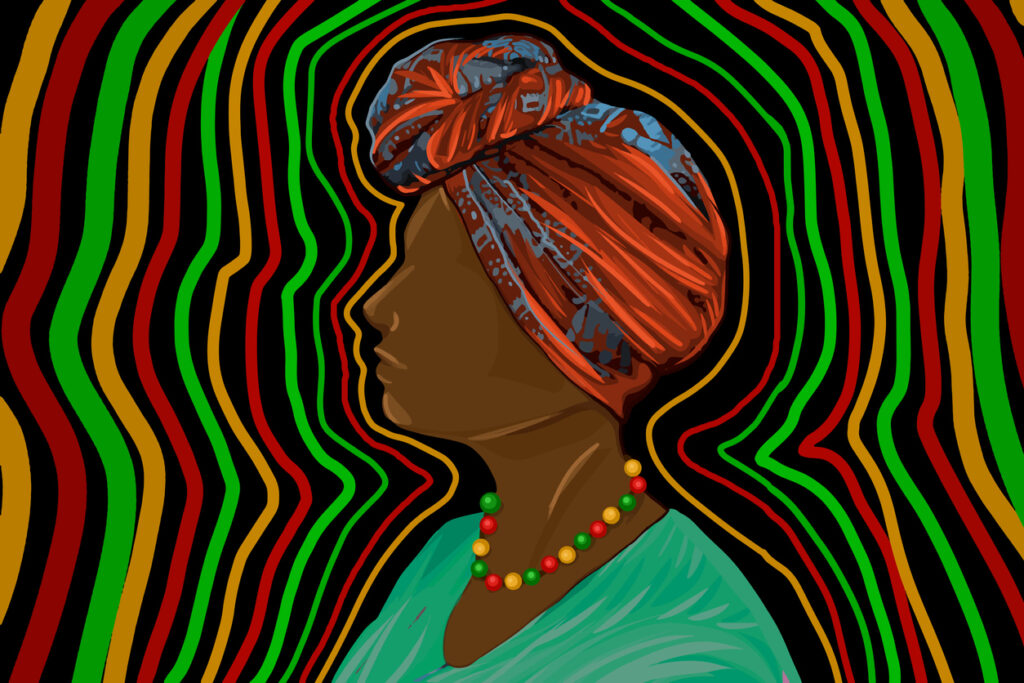The theme for Black History Month (BHM) 2022 is ‘Time for change: Action not words’. But what exactly does that mean? Are we in for a huge influx of virtue signalling, black square posting and empty hashtags? Or will this be the year that individuals and organisations really start to implement positive change, not just this month, but every month moving forward?
I envisage that we’ll land somewhere in between.
So, what does Black History Month mean to me?
In recent years, my feelings towards [Black History Month] have been conflicted.
In the UK, Black History Month was first celebrated in London in 1987 as part of the African Jubilee Year. Dr Maulana Karenga (US activist, author and professor) was invited to an event at County Hall to honour the contributions of Black people throughout history, and Addai-Sebo (Ghanaian analyst, journalist and pan-African activist) drew up a plan to recognise the contributions of African and Caribbean people to life in the UK.
BHM is a time to celebrate the contributions of black people throughout history. But in recent years, my feelings towards it have been conflicted.
The discord that is Black History Month
On one hand, there are incredible people and organisations making great strides towards racial equality, sharing knowledge and making real change within the organisations/communities they support. There are brilliant black artists, musicians and professionals paving the way for future generations.
And yet, to me, it feels to me like the celebratory angle has been lost. Instead of BHM being focused on the great work, contributions and achievements of these people, events over the past few years – coupled with the magnified voices discussing the injustices and inequality faced by the black community – Black History Month is beginning to feel like a month-long protest. But maybe that’s not a bad thing!
I’m a 24-year-old, mixed raced (black and white) woman. I’ve existed in spaces where the colour of my skin has been deemed ‘white enough’ to shield me from racist remarks and microaggressions. But in others, it’s been fetishised and, fortunately, many where I have felt completely safe and valued.
Bringing it to life in the workplace
Having worked in organisations with over 60,000 staff right down to my current company with just a team of 10, I’ve also seen a huge variety in the way BHM is handled.
The largest company I worked for had a multicultural network that made a huge effort to host events around the country to celebrate the achievements of black employees, showcase their cultures and heritage and champion their thoughts on change within the business.
I’ve also worked in places where the month was not acknowledged at all and, internally, I questioned why this was. Is it because I was the only black team member? Is it because the wider team didn’t know how to acknowledge it? Were they worried about saying/doing the wrong thing? Were they actively avoiding virtue-signalling behaviour? The honest answer is I don’t know.
The flip side to that is that there are far too many organisations that use this month as an opportunity to update their logo, post a few hashtags and implement small changes that they feel will make a difference, without listening to what their people/communities/partners/clients need/want from them.
This year’s theme is focused on ‘actions not words’ but jumping into things without thinking, understanding and planning, can be dangerous.
Make a conscious effort to ask the black people around you how they feel about BHM
So where should organisations start?
Listen. Understand. Act. The winning formula for employee experience.
Listen.
Make a conscious effort to ask the black people around you how they feel about BHM, what they would like to see from friends/family/employers – and then actively listen!
Take the time to ask follow-up questions and, again, give them the space to articulate our thoughts.
A YouGov poll conducted in 2018 showed that over half of the black UK workforce has been subject to workplace racism. So many are afraid to speak up and don’t know where to start. Try not to be judgemental or jump to conclusions/defence if something is making you uncomfortable.
These conversations are often clumsy and awkward for all parties to begin with But the more they happen, the easier they become.
Understand.
This means owning your education on the topic. You need to understand the unconscious biases you hold:
- Do you shy away from pronouncing difficult names?
- Do you think that braids, dreadlocks or afros look “less professional’?
- If you use any graphics of people in your marketing, are they all white?
Once you are aware of what these are, you can then start challenging yourself to change. Self-awareness is key!
Outside of individual bias, it’s important to understand the sensitivities/challenges black people face and there are several books, films and documentaries available to help you with understanding the topic at a broader level. Here are some of my personal recommendations:
- Why I’m No Longer Talking to White People About Race by Reni Eddo-Lodge
- The mixed-race experience by Natalie & Naomi Evans
- They Can’t Kill Us All: Ferguson, Baltimore, And A New Era In America’s Racial Justice Movement by Wesley Lowery
- ‘When They See Us’ (2019) – Available on Netflix
Act.
Now it’s time to take action. Reflect on, really understand and think about what real action you can take to celebrate black people and aid in pushing for racial equality.
The actions each individual takes may be completely different and this is the same at a company level. I can’t tell you what challenges your company/team/community has, so I can’t tell you what the solution is. But, if you lean in, you make yourself available and you truly listen, I believe you’ll be able to find out.
Things don’t change overnight. We all need to show up and actively fight racism and celebrate black people and history day in, day out. But Black History Month feels like a pretty good time to get started.
Black lives matter. Now. Tomorrow. Always.
[cm_form form_id=’cm_65a14c3f5da64′]






